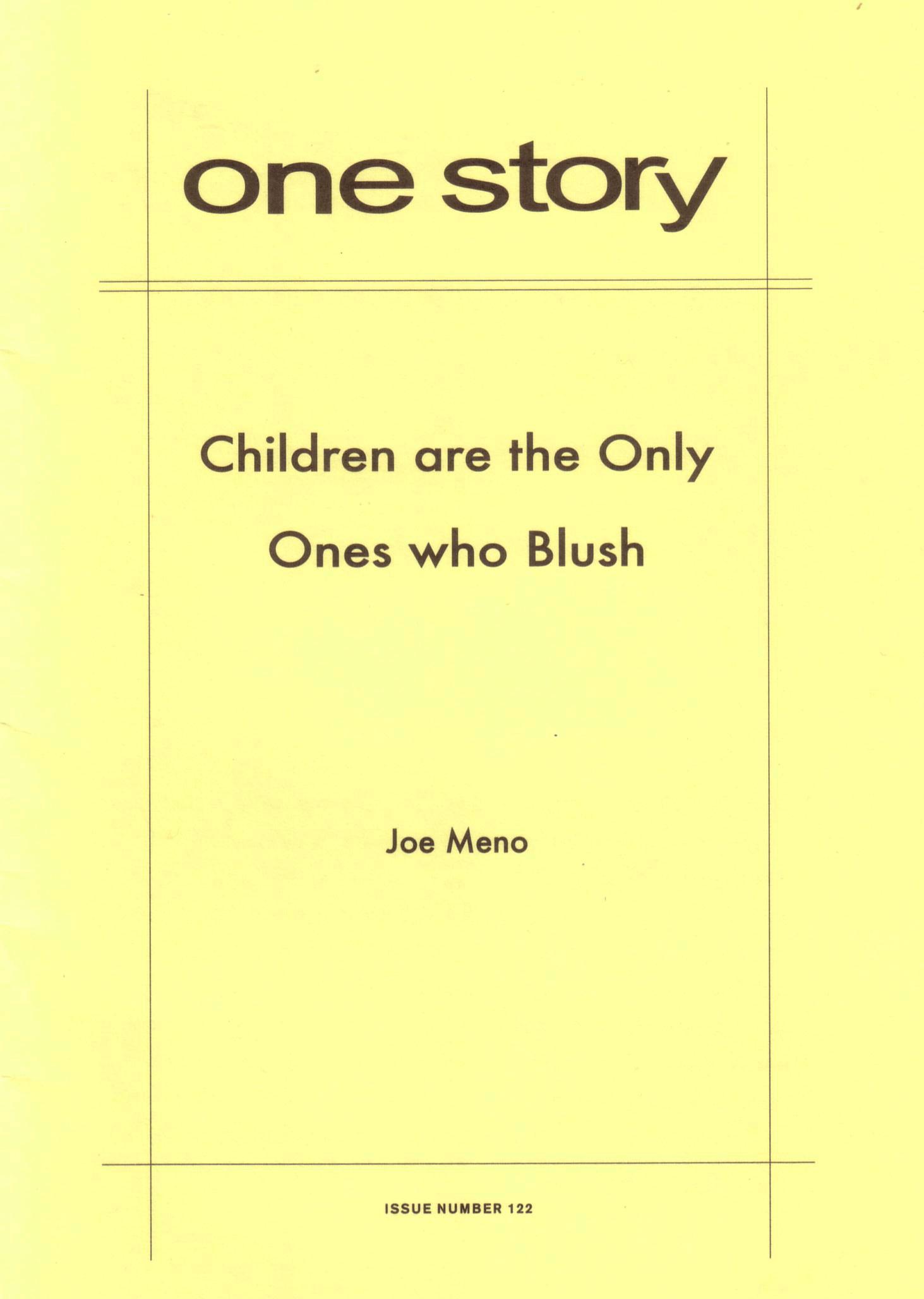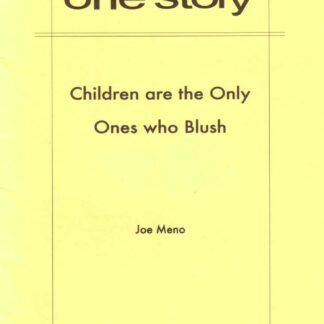
Children are the Only Ones who Blush
$2.50
20 in stock
Excerpt
Art school is where I’d meet my sister each Wednesday, and then, the two of us would travel, by cab, to couple’s counseling. Although Jane and I were twins, by the age of nineteen, she was already two years ahead of me in school, and because both of our parents were psychiatrists, and because I had been diagnosed with a rare social disorder, a disorder of my parent’s own invention, Jane and I were forced to undergo couple’s therapy every Wednesday afternoon. The counseling sessions were ninety minutes long and held in a dentist’s office. As both of my parents were well-known in their field, they had a difficult time finding a colleague to analyze their children, and so they were forced to settle on a dentist named Dr. Dank, a former psychiatrist who had turned his talents to dentistry. He was an incredibly hairy man who smoked while my sister and I reclined in twin gray dental chairs. Dr. Dank did all he could to convince me that I was angry at my twin sister for being smarter and also that I was gay.
Joe Meno
Joe Meno is the author of several novels and two collections of short stories including Demons in the Spring, which was a 2008 Story Prize Finalist. His latest novel is The Great Perhaps published by W.W. Norton in May 2009.
Q&A by Hannah Tinti
- HT: Where did the idea for this story come from?
- JM: I had the amazing opportunity to read with Dorothy Allison and ZZ Packer at this year’s AWP writing conference. I had about eight months to try and come up with something that would hide how terribly outclassed I was.
- HT: What was the most challenging aspect of writing this story?
- JM: I knew, writing it, that I was going to be reading it out loud to an audience, and that was a definite challenge. There are certain things that work really well on the page that don’t come across so well live. I knew the piece had to be first person, needed to have some humor, and that there’d be a lot of dialogue throughout. I also had a general sense of the length. From there, I started writing the story, which is the exact opposite of how I usually work—following some idea or character, and deciding the elements of the story after that.
- HT: The title of this story is quite interesting. Can you talk about where it came from? Did it come before or after the story was written?
- JM: I had finished a draft of the story and was experimenting with different titles when I remembered this line from “Sweet Jane” by the Velvet Underground. To me, the story is about the clash between sophistication and imagination, adulthood and childhood, psychiatry and art. It seems to sum up Jane’s point of view, pretty well.
- HT: Though the story is very much about Jack, psychiatry plays a big role. What drew you to place Jack in a family of “shrinks”?
- JM: A friend of a friend mentioned that he and his sister went to couples’ counseling as children. I soon discovered that his parents were both shrinks, which seemed to explain the importance they placed on psychiatry in their family’s life. Once I got that detail, the story really started developing on its own.
- HT: You manage humor in the story in a way that feels crisp and controlled, while it easily could have become distracting. How do you find the balance in narrative tone between the light and the dark?
- JM: All of my favorite stories are ones that explore the contrast between humor and sadness. I think of folks like Raymond Carver and Amy Hempel and steal from them liberally, again and again.
- HT: Why does Jill Thirby wear so much yellow? Is there any greater significance to that? What inspired you to give her a one-color wardrobe?
- JM: For me, the color yellow reminds me of childhood. It seems any adult who wears yellow all the time has to be slightly deranged. I think it adds a nice, humorous quality to Jill’s character, and shows that she inhabits this other world of wonder and imagination.
- HT: Towards the end of the story, Jack suggests that his family is burdened by their intelligence and worldliness. As a result, they are pretty miserable—and yet, they are all telling Jack who he is and what he should be doing with his life. Why do you think Jack is different, and how does he escape this world?
- JM: Jack is different because he’s consciously and unconsciously avoiding becoming a typical adult. He enjoys living in the moment and has decided that he’s actually completely happy without having to delve into the secret, subliminal motives of all things. He doesn’t entirely escape the adult world, as the ending with the cat’s death suggests, but he’s decided he’s not going to follow his family’s dependence on over-analysis either.
- HT: You’ve written several novels, including your latest, The Great Perhaps, yet your short story collection, Demons in the Spring, was a finalist for the Story Prize. How do you switch back and forth between longer and shorter forms of story-telling? What do you think are the advantages and disadvantages of each?
- JM: For me, almost everything starts off as a short story. All of my novels have been built around material that’s been explored or published as short stories, because it forces me to get to the character and action quickly, and helps me figure out what the story is actually about. I usually write a few short stories and realize that they feature similar questions or characters and decide that there’s a novel there somewhere. The biggest advantage and disadvantage in working with short stories has to do with the size of the audience reading them: it seems that the short story is going the way of poetry, or jazz music, enjoyed by a highly informed, smaller audience. I think in some ways it’s incredibly liberating and allows for much more experimentation. The era of being able to live off the money you make writing a short story is all but over, which means any story you write is more an expression of your art than it is a way to pay the bills. There’s also something ridiculously archaic about short stories, which I really love.
- HT: How long did it take you to complete this story?
- JM: I wrote and rewrote it for about eight months, up until the day I read it live, and then did another couple drafts after that, based on Hannah Tinti’s amazing suggestions.
- HT: What are you working on now?
- JM: I’ve just had a new novel come out and so I’ve been busy with that. I’ve also been writing some new short stories and started playing around with what will hopefully be a new novel, which revisits characters from “Children Are the Only Ones Who Blush.”
- HT: What is the best bit of advice about writing you have ever received?
- JM: To write one good short story, you’re probably going to write about nine bad ones. You have to enjoy the mistakes and failures and misfires and realize writing is all about one thing: trial and error.
